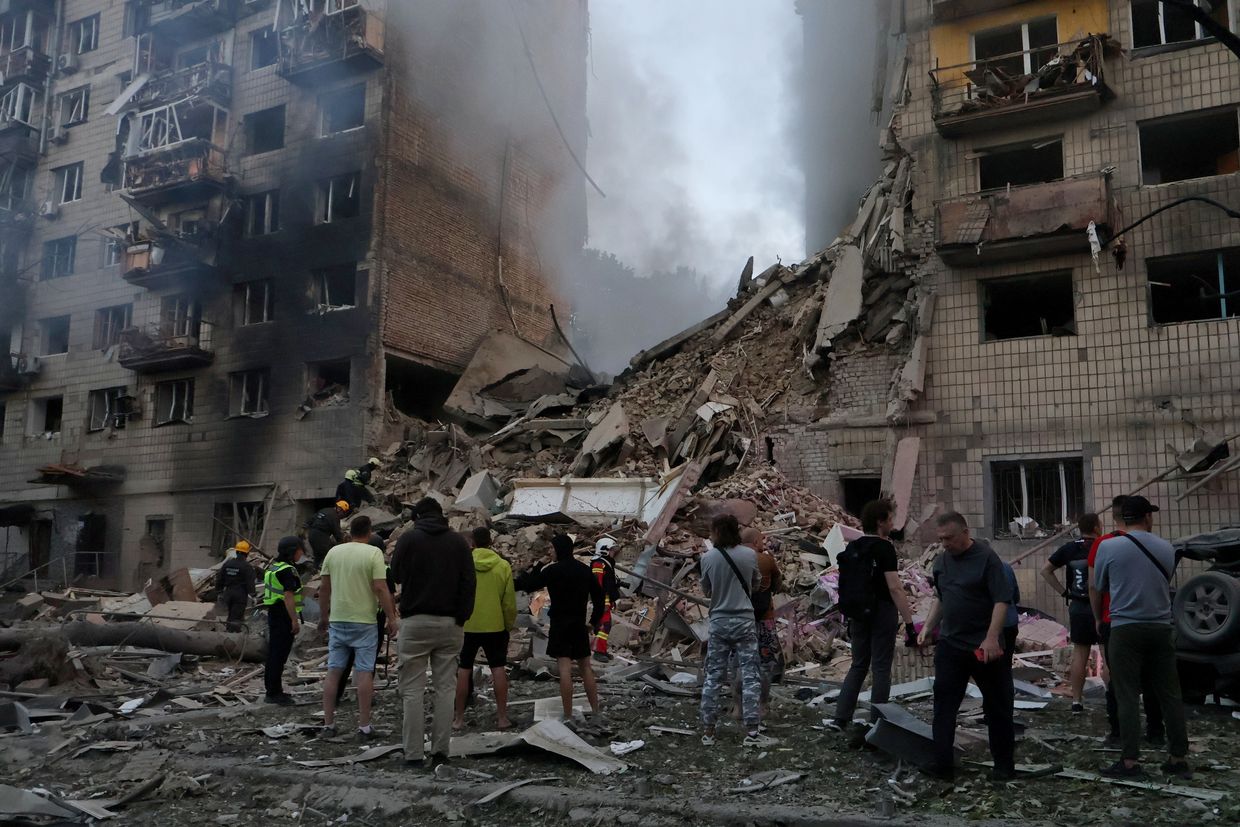Trump’s Shift on Ukraine Is Good News for Europe, for Now

© David Guttenfelder/The New York Times

© David Guttenfelder/The New York Times

© Pool photo by Ludovic Marin

© Sebastien Bozon/Agence France-Presse — Getty Images

© Pool photo by Alberto Pezzali

© Kamil Zihnioglu/Associated Press

© Pool photo by Ludovic Marin

© Pool photo by Geoff Pugh
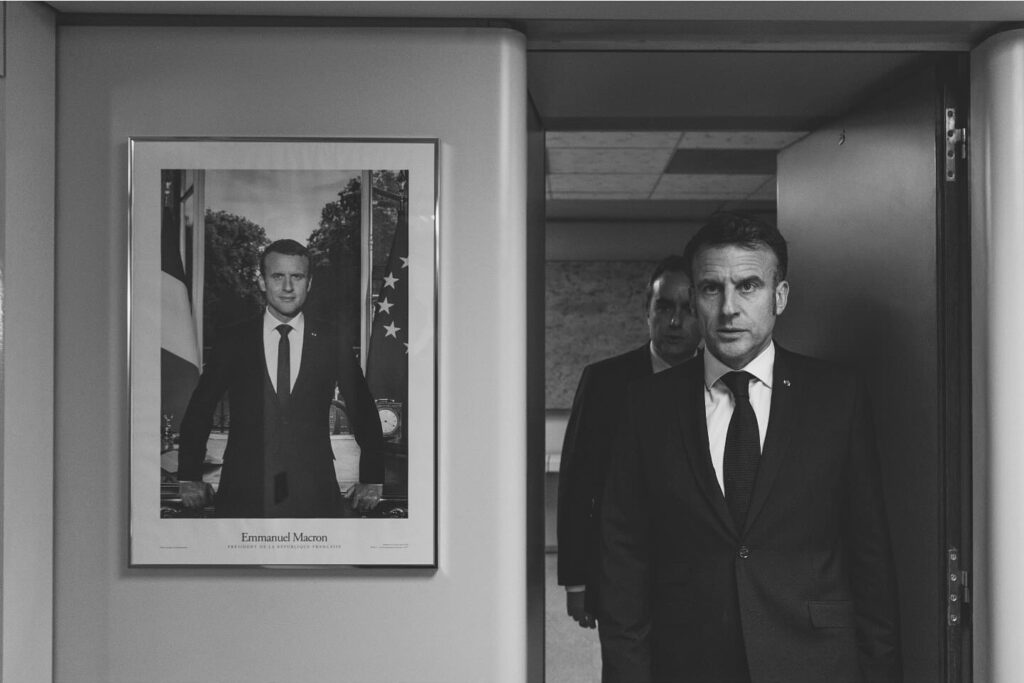
While Ukraine fights for survival, European politicians are retreating into familiar appeasement patterns—abandoning their post-2022 transformation promises for the comforts of pre-war diplomacy that now threaten the continent’s own security.
“I talk to Putin; therefore, I exist.”
— Raphaël Glucksmann

French MEP Raphaël Glucksmann delivered a scathing critique after French President Emmanuel Macron held a two-hour call with Vladimir Putin on 1 July—his first direct contact since September 2022. Glucksmann warned that this return to Moscow engagement signals an “atavistic inconsistency that condemns us Europeans.”
“It was inevitable. We all sensed it was going to happen. And it did.”
According to the Élysée readout, the conversation focused more on Iran’s nuclear program than Ukraine, sparking concern that Ukraine is being deprioritized despite Russia’s brutal war now in its fourth year.
Glucksmann, a staunch Ukraine supporter in the European Parliament’s Socialists & Democrats Alliance, condemned the conversation as evidence that Europe has abandoned its post-invasion commitments.
“A few weeks after our leaders’ passionate call for a great European awakening, it’s back to ‘I talk to Putin; therefore, I exist.”
He described Macron’s behavior as narcissistic, and Europe’s broader response as a retreat from the promised “mental revolution.”
“Our leaders had sworn we’d entered a new world that required a new Europe… a transition to adulthood.”
That awakening, he writes, has collapsed.
“Heads that briefly emerged from the sand are quietly returning to their natural habitat. Nice and warm and comfortable.”

Glucksmann characterized European political behavior as fundamentally dysfunctional.
“Most of us have always been amazed at how Western apathy is paradoxically characterized by constant frenzy. We Europeans are strange people, hyperactive passives in a sense.”
He described EU leaders as “jumping on every news ball without catching any, commenting on every news item in an equally serious voice, going around in circles wagging our tails with a serious air, moving from subject to subject, country to country, problem to problem without ever changing our tone.”
This scattered approach produces nothing meaningful. “When everything is fundamental, nothing matters. Bees forage like us, of course, but they produce something as they fly from flower to flower. Not Europeans; not us.”
“Our fluttering has no effect.”
Glucksmann condemned the strategic logic behind renewed Putin engagement. “The tyrant who is waging war on Europe—because that is what is happening in Ukraine and beyond—is once again acceptable because he is the godfather of the Iranian regime and can bring France—perhaps, with a little luck and a dash of goodwill—back into the diplomatic game in the Middle East.”
In the official communiqué, Iran received three times more attention than Ukraine, with both presidents—Macron and Putin—agreeing to “coordinate their approaches and to speak again soon” on Tehran while disagreeing on Ukraine.
“Ukraine is still entitled to a few lines in this communiqué, of course, with a reminder of our commitment to its sovereignty and territorial integrity.”
“We will move forward together on Iran, but it’s still wrong to invade a European country, isn’t it? Powerful, indeed.”
Can France keep its word to Ukraine with new CAESAR contracts stacking up?
Glucksmann emphasized why this war demands sustained European focus.
“This war is different, not in itself, not for everyone, not for ‘the world’ in general, but for us, here in Europe. Yes, for us: for us, Europeans. Why? Because it is taking place on our soil and it is targeting us.”
European security services understand the broader threat. “We have heard our security services tell us that it is only a prelude. Because we have seen the head of the German Special Services warn of the likely invasion of a NATO country before 2029.”
Yet political leaders ignore these warnings.
“We hear, we see, yes. Then we forget. NATO chief Mark Rutte calls Donald Trump ‘Daddy’ at the NATO summit, and Macron phones Putin to talk about Iran’s nuclear program. Back to normal, then.”

Glucksmann described current leadership as engaging in “great Western zapping that is turning our political leaders into luxury TikTokers” while avoiding sustained focus on continental defense needs.
Despite this broader failure, Glucksmann identified those maintaining proper focus: “…some of us try to stay focused on European defense, the Russian threat, American abandonment, and the aid we must provide to Ukraine, our first line of defense in a confrontation that will last for a long time to come.”
He warned of civilizational consequences from this approach: “Such atavistic inconsistency condemns us Europeans. If we don’t change—our leaders, but above all our relationship to the world and to time—we will sink and drown.”
Glucksmann concludes with clarity:
“Because our future is being decided there. And that is where we can and must make a difference.”
The Macron-Putin conversation occurred as Russia maintains occupation of approximately 20% of Ukrainian territory while conducting daily bombardment of Ukrainian cities. Putin demanded that any peace deal be “based on new territorial realities,” effectively requiring Ukrainian territorial concessions.
French officials say Macron informed Ukrainian President Volodymyr Zelenskyy before and after the call—but Glucksmann sees that as symbolism without substance.

Raphaël Glucksmann is a French MEP known for his unwavering support of Ukraine. He has been a vocal critic of the “incremental” military aid strategy, urging Western leaders to deliver a “full package”—air defense, long-range missiles, aviation—to ensure Ukraine can win.
Glucksmann champions the idea of seizing frozen Russian assets—up to €300 billion—to fund Ukraine’s defense and reconstruction, describing it as a vital “war‑economy” measure and calling out political hesitancy across Europe.
Glucksmann also promotes pro‑European unity, support for Ukraine, human rights (notably against China’s Uyghur persecution), and strengthening EU democracy and security. For him, supporting Ukraine is not just solidarity—it’s the defense of European democracy.

© Ludovic Marin/Agence France-Presse — Getty Images
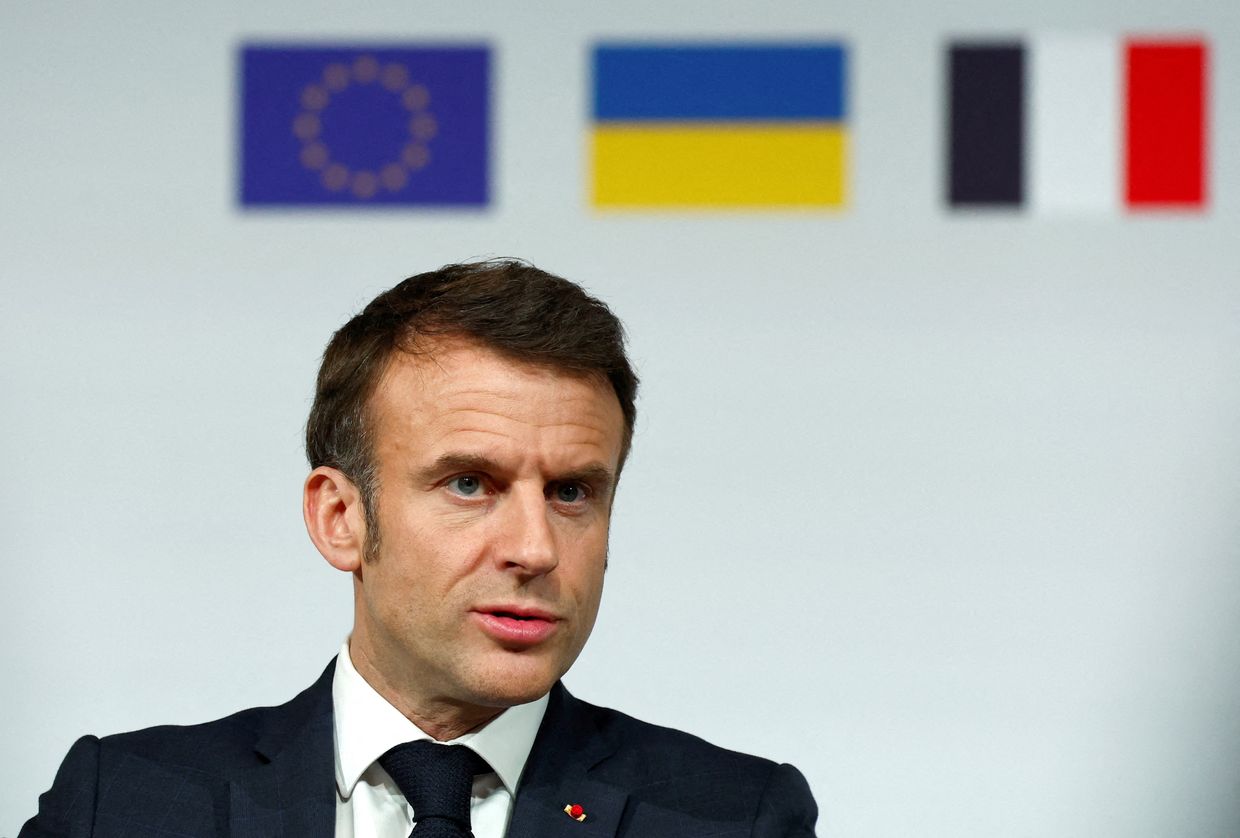
Editor's note: The story was updated as the President's Office confirmed that following the call with Vladimir Putin, Emmanuel Macron also called Volodymyr Zelensky.
French President Emmanuel Macron and his Russian counterpart Vladimir Putin held a call on July 1 for the first time since 2022, discussing Russia's war against Ukraine and the conflict in the Middle East, the Kremlin's press service reported.
The conversation between the two leaders took place as the Russian army continues to advance along the front line, trying to gain a foothold in Sumy Oblast and enter Dnipropetrovsk Oblast.
Moscow has repeatedly rejected the U.S.-backed ceasefire proposal, stalling peace talks with Ukraine.
Following the call with Putin, Macron also called Zelensky to discuss his conversation with the Russian president, a source in the President's Office told the Kyiv Independent.
The call between Zelensky and Macron was "constructive," the source added. Putin's position remained unchanged: he does not show any willingness to end the war in Ukraine, according to the source.
The call between Putin and Macron lasted over two hours, BFM TV reported, citing the Elysee Palace.
During the conversation with Macron, Putin called Russian war "a direct consequence of the policy of Western powers" that "ignored Russia's security interests, created an anti-Russian bridgehead in Ukraine," the Kremlin said.
Macron, in turn, noted France's unwavering support for Ukraine's sovereignty and territorial integrity, Suspilne reported, citing the Elysee Palace.
The French president also called for "a ceasefire to be established as soon as possible and for negotiations to begin."
The leaders will continue to discuss Russia's war in Ukraine, according to the Elysee Palace.
The presidents also discussed the situation in the Middle East regarding the Iranian-Israeli conflict and the U.S. strikes on Iranian nuclear facilities.
Macron frequently called Putin in the first year of Russia's full-scale invasion of Ukraine. Their previous call took place in September 2022.
 The Kyiv IndependentOleg Sukhov
The Kyiv IndependentOleg Sukhov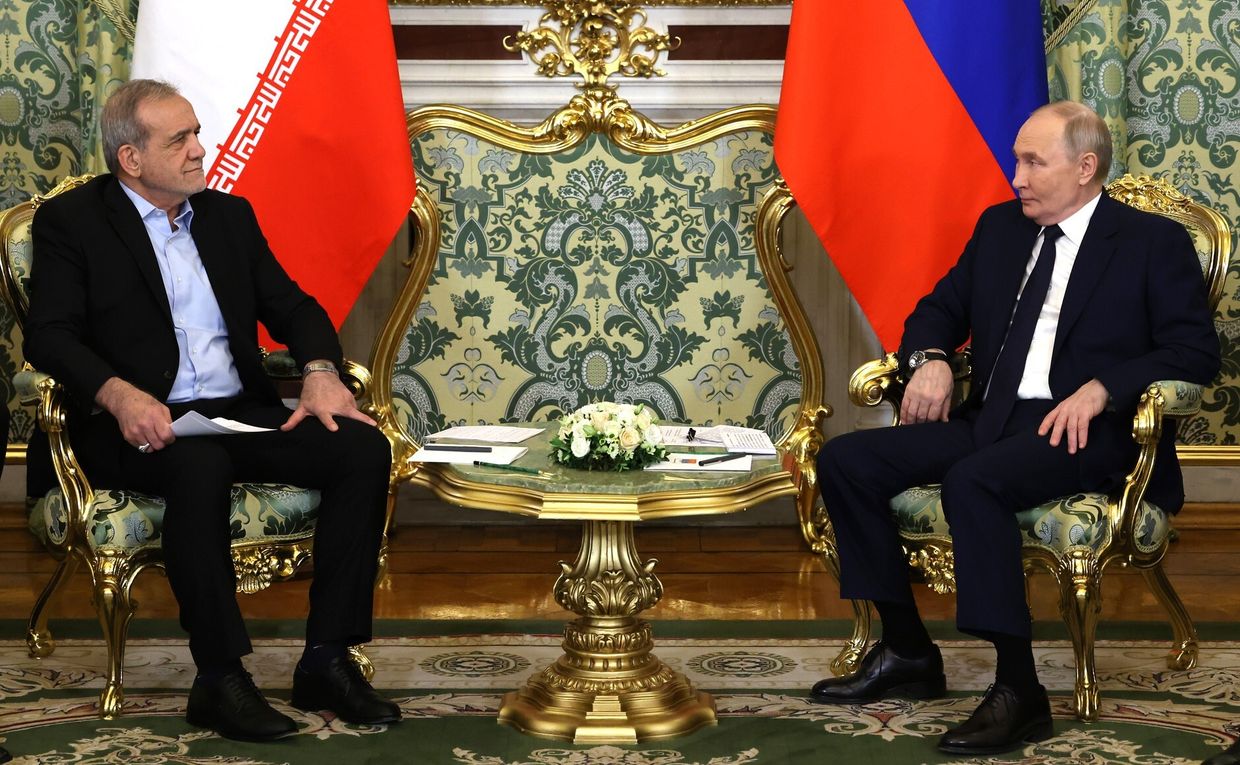
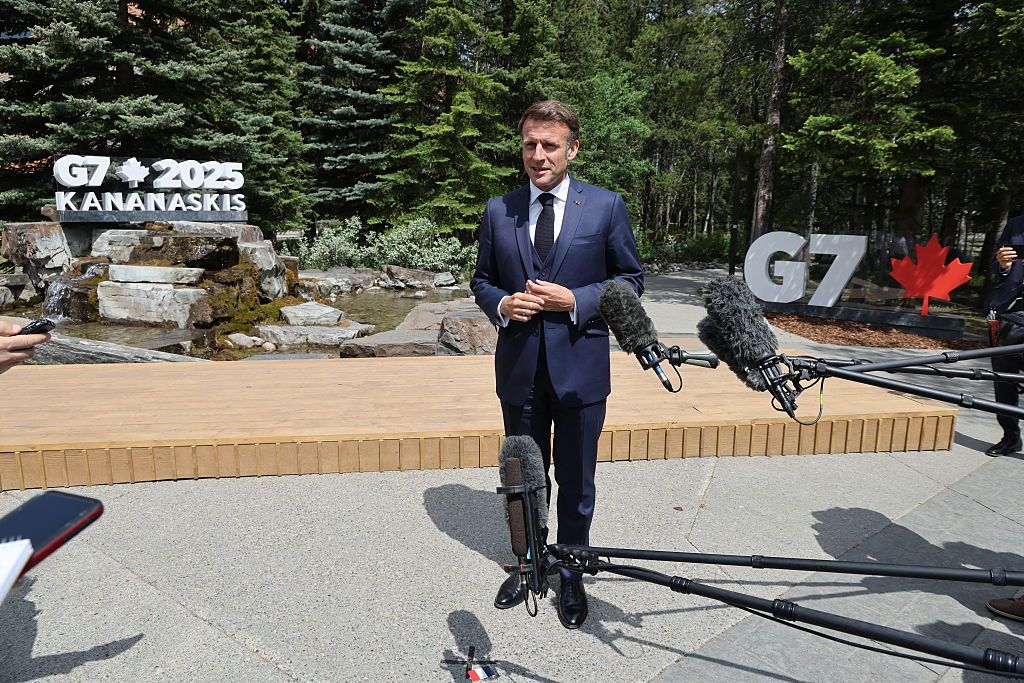
The European Union and its allies are ready to toughen sanctions on Russia, French President Emmanuel Macron said on the sidelines of the Group of Seven (G7) summit on June 17.
"With President (Volodymyr) Zelensky at the G7. We stand in solidarity with the Ukrainian people after last night’s massive Russian strikes," Macron said in a post to social media.
"We are determined to increase pressure on Russia to accept the immediate and unconditional ceasefire that Ukraine is ready for," he added.
Macron attended the G7 summit in Kananaskis, Canada, from June 15-17. Global leaders discussed a wide range of topics, including Russia's war against Ukraine.
As the G7 leaders met in Canada, Russia launched one of its worst drone and missile attacks on Kyiv since it began its full-scale war against Ukraine in February 2022, killing 16 people and injuring at least 134.
"The common position that is emerging is to say, 'We need to strengthen sanctions,'" CBC News reported, citing Macron.
Europe is proposing much tougher sanctions than the U.S. has imposed on Russia, Macron said, adding that the EU is in "very close co-ordination" with Canada, Japan, and the U.K.
Several countries, including Canada and the U.K., introduced additional sanctions on Russia as the G7 summit was ongoing.
Canada introduced a new military aid package for Ukraine in addition to its sanctions against Russia.
"In our view, this has changed the situation because it will allow us to bring Russia back to the negotiating table, as (U.S.) President (Donald) Trump has been demanding," Macron said, according to CBC News.
Zelensky attended the summit and met with various leaders, including Macron and Canadian Prime Minister Mark Carney.
Zelensky left the summit early, citing Russia's attack on Kyiv. The nearly nine-hour-long attack saw Moscow's forces launch large numbers of drones and missiles at Ukraine's capital.
Foreign Minister Andrii Sybiha condemned the attack, calling it a "massive and brutal strike" timed deliberately to coincide with the G7 summit.
Zelensky described the drone and missile assault as "one of the most horrifying attacks on Kyiv."
 The Kyiv IndependentKateryna Denisova
The Kyiv IndependentKateryna Denisova